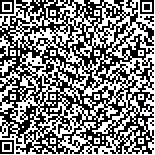|
|
|
| |
|
|
| 本文已被:浏览 873次 下载 1511次 |

码上扫一扫! |
|
|
| 海州湾赤潮高发区浮游细菌与赤潮及环境因子的关系 |
|
詹皓禹1,2, 宋敏杰1,2, 王云峰1, 颜天1
|
|
1.中国科学院海洋生态与环境科学重点实验室, 中国科学院海洋研究所, 山东 青岛 266071;2.中国科学院大学, 北京 100049
|
|
| 摘要: |
| 海州湾是南黄海赤潮高发区之一。为研究浮游细菌与赤潮及环境因子的关系,于2020年11月在海州湾赤潮期间进行了现场调查,采集了8个站位的浮游细菌、浮游植物样品,获取了温度、盐度、叶绿素a以及氮、磷、硅营养盐浓度等环境因子信息,分析了赤潮原因种及浮游细菌群落结构情况。结果显示,此次赤潮原因种为三叶原甲藻(Prorocentrum triestinum)、赤潮异弯藻(Heterosigma akashiwo)及塔胞藻(Pyramimonas sp.),发生赤潮时水温、盐度较低,盐度与赤潮异弯藻的分布有一定的联系。使用16S rRNA高通量测序方法分析调查海域的浮游细菌情况,结果显示赤潮发生站位的浮游细菌多样性略低于其他非赤潮发生站位,优势细菌与其他站位有明显不同,以假单胞菌目(Pseudomonadales)、红杆菌目(Rhodobacterales)和黄杆菌目(Flavobacteriales)为主。赤潮发生站位的浮游细菌群落结构也存在一定的差异,不同站位可能处于不同的赤潮阶段,对浮游细菌群落具有不同的影响。相关性分析显示,黄杆菌目与叶绿素a显著正相关,表明黄杆菌目与赤潮发生有一定的关系。 |
| 关键词: 浮游细菌 群落结构 环境因子 赤潮 海州湾 |
| DOI:10.11759/hykx20220510001 |
| 分类号: |
| 基金项目:中国科学院A类战略性先导科技专项(XDA23050302);科技基础资源调查专项(2018YF100200) |
|
| Relationship between bacterioplankton and the red tide and environmental factors in frequent harmful algal bloom areas in Haizhou Bay |
|
ZHAN Hao-yu1,2, SONG Min-jie1,2, WANG Yun-feng1, YAN Tian1
|
|
1.CAS Key Laboratory of Marine Ecology and Environmental Sciences, Institute of Oceanology, Chinese Academy of Sciences, Qingdao 266071, China;2.University of Chinese Academy of Sciences, Beijing 100049, China
|
| Abstract: |
| Haizhou Bay is an area of the South Yellow Sea with frequent harmful algal blooms. To study the relationship between bacterioplankton and the red tide and environmental factors, a voyage survey was carried out during a red tide in Haizhou Bay in November 2020. Bacterioplankton and phytoplankton samples were collected from eight stations. Environmental factors, including temperature, salinity, chlorophyll a, and concentrations of nitrogen, phosphorus, and silicon were collected. The causative species of the red tide and bacterial community structure were analyzed. The results showed that the causative species of the red tide were Prorocentrum triestinum, Heterosigma akashiwo, and Pyramimonas sp. Water temperature and salinity were low when the red tide occurred. Salinity was related to the distribution of H. akashiwo. 16S rRNA high-throughput sequencing was used to analyze the bacterial community. The diversity of the bacterioplankton at the red tide stations was slightly lower than that at the other stations. The dominant bacteria at the red tide stations were significantly different from those at the other stations, including Pseudomonadales, Rhodobacterales, and Flavobacteriales. The bacterial communities were different at the red tide stations. Different stations may have been in different stages of the red tide bloom, so they had different effects on the bacterial community. Correlation analysis showed that Flavobacteriales was positively correlated with chlorophyll a, indicating a relationship between Flavobacteriales and the occurrence of red tide. |
| Key words: bacterioplankton community structure environmental factors red tide Haizhou Bay |
|
|
|
|
|
|
